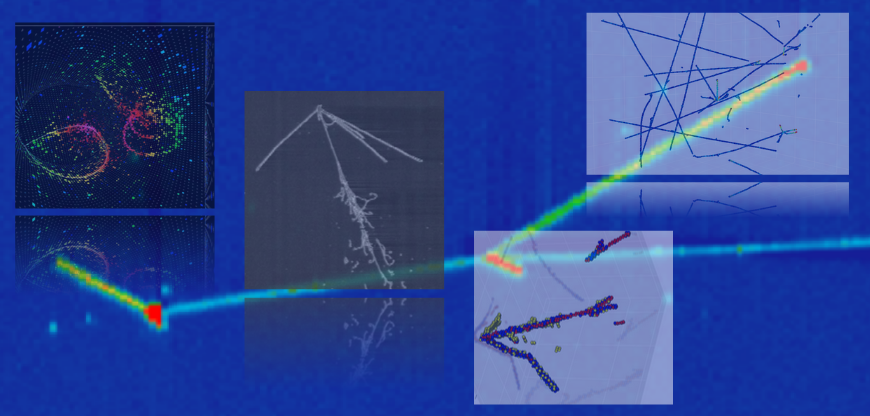Speaker
Description
Deep learning methods are becoming indispensable in the data analysis of particle physics experiments, with current neutrino studies demonstrating their superiority over traditional tools in various domains, particularly in identifying particles produced by neutrino interactions and fitting their trajectories. This talk will showcase a comprehensive reconstruction strategy of the neutrino interaction final state employing advanced deep learning within highly-segmented dense detectors. The challenges addressed range from mitigating noise from geometrical detector ambiguities to accurately decomposing images of overlapping particle signatures in the proximity of the neutrino interaction vertex and inferring their kinematic parameters. The presented strategy leverages state-of-the-art algorithms, including transformers and generative models, with the potential to significantly enhance the sensitivity of future physics measurements.
| Type of contribution | Talk: 30 minutes. |
|---|

